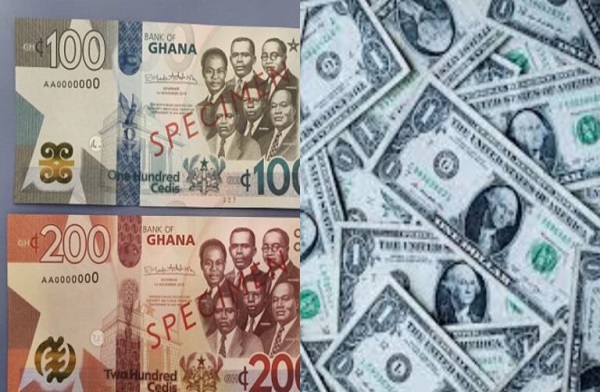Professor Godfred Bokpin, an economist and finance expert, has attributed part of the cedi’s depreciation to the International Monetary Fund’s (IMF) programme with Ghana.
He said that under the IMF programme, the Central Bank was barred from intervening in the currency exchange market when the Cedi fell against major trading currencies.
That situation prevented the Bank of Ghana (BoG) from entering the foreign currency market to stabilise the Cedi.
Prof. Bokpin commented on a local radio station that was monitored by the Ghana News Agency (GNA) over the weekend.
“Part of the reason why the cedi is depreciating is also consistent with the latest IMF-supported program. Under the IMF-supported programme, they favour a stable exchange rate.
“This limits the ability of the central bank to be in the market and fight off the depreciation through our reserves.
“Part of the IMF programme is to build our reserve of three months of import cover for 2026…What that means is that it tightens the hands of the central bank to intervene in the market to sell dollars to stabilise the cedi.
“Now they cannot do that under an IMF programme,” he said.
In May 2023, the IMF Executive Board approved a US$3 billion External Credit Facility (ECF) with Ghana for 36 months.
Prof. Bokpin also identified other factors that have influenced the cedi’s recent depreciation.
He said that the cedi’s depreciation was also triggered by the delayed foreign debt restructuring, which affected the receipt of the third tranche of the ECF under the IMF programme.
The IMF has indicated that it would transfer the third tranche of $360 million, notwithstanding Ghana’s inability to negotiate a final debt agreement with its official bilateral creditors.
Mr. Charles Kusi Appiah Kubi, a representative of the Ghana Union of Traders Association (GUTA) and a panellist on the discussion, suggested the prioritisation of retention policies to stabilise the cedi since multinational companies would be barred from repatriating profits.
Dr. Kwabena Nyarko Otoo, Director of Research for the Trade Union Congress, also encouraged the Central Bank to address the “open” trade of foreign exchange in Ghana, particularly the black market, to relieve pressure on the cedi.
Latest Stories
-
China tells Trump: If you want trade talks, cancel tariffs
28 minutes -
Gwyneth Paltrow eating bread and pasta after ‘hardcore’ food regime
39 minutes -
Strong Institutions, not Strong Men: UPSA forum urges tech-driven reforms to curb tax revenue leakages
46 minutes -
Police fatally shoot man at Toronto’s international airport
50 minutes -
Health of Brazil’s ex-president Bolsonaro has worsened, doctors say
60 minutes -
Ghana is not broke, it is bleeding- UPSA’s Prof. Boadi calls for bold action on tax leakages
60 minutes -
Harry and Meghan call for stronger social media protections for children
1 hour -
Rotaract District 9104 concludes inspiring District Learning Assembly & Conference 2025 in Takoradi
1 hour -
New GSS boss Dr Alhassan Iddrisu pledges accurate, timely data for national development
2 hours -
King Mohammed VI launches Kenitra-Marrakech High-Speed Rail Line
2 hours -
Kidney failure survivor sends emotional birthday tribute to Rashida Saani
2 hours -
Police launch investigation into fatal shooting by military personnel at Nyinahin
2 hours -
World Bank to help Ghana provide jobs for over 500,000 youth entering job market each year
2 hours -
2025 Para Athletics: Ghana’s Zinabu Issah wins gold medal in Women’s F57 discuss throw
2 hours -
Banks, SDIs dismissed 155 staff for fraud in 2024 – BoG
3 hours

